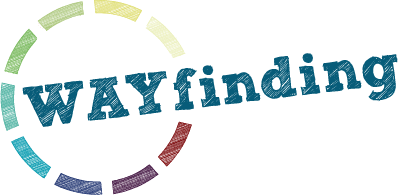| Anne Williamson |
Bill Maher once said, "Everything that used to be a sin is now a disease." Interestingly, I don't know whether he said this in support or opposition of the shift. I assume he doesn't like the "religulous" word sin; and yet, I experience him as a strong believer - yes, believer - in personal responsibility, which "disease" diminishes.
Either way, remove "everything" from his statement - obviously Maher hasn't been to marriage counseling where absolutes are a major "no-no" - and it rings true. Liberal camps, even those of the religious persuasion, hate blaming sin on the sinner. Admittedly, I lean this direction too. Hang around me long enough and you're sure to hear me repeat Maya Angelou's famous words, "When you know better, you do better."
The thing is, Maya's words aren't meant to "let us off the hook;" they're meant to call us to better. Her words echo Jesus' to the adulteress woman in John, chapter 8. After no one "casts the first stone," Jesus doesn't simply walk away. Rather, he tells the adulteress woman, "Neither do I condemn you. Go your way, and from now on do not sin again." In other words, now that you know better, do better.
It's an idea that aligns well with TED speaker Gary Slutkin's perspective on wrath, this week's deadly sin. Slutkin is an epidemiologist who noticed striking similarities between the maps, charts and predictors of infectious disease epidemics and neighborhood gun violence. He began seeing violence as a contagious disease - wrath as something people "catch," not as a result of some kind of inherent "badness" - and successfully began treating it as such.
My curiosity about Slutkin's model - with its focus on changing behavior - is what becomes of the cumulative pain. Believing we commit sins in large part due to ignorance or oppression may erase much of our culpability but it cannot erase the actual sin and its consequences. We lied; we took life; we assaulted with our words; we only thought of ourselves; we.... It happened; we must face the pain we caused. To use religious words, we must repent and reconcile. Thankfully, though it's hard work, there is something uniquely healing in doing so.
Going forward, then, I think I'll make a slight adjustment to Maya's wise words: "When you know better, [own the pain you've caused - yourself and others - and do the hard work of reconciliation; then, or while you're still working it out,] do better."
We'll be exploring these ideas and more this week in WAYfinding. If you can't join us in groups, listen to Slutkin's TED Talk. In conversation with this blog post, what do you think? Share with a friend, partner, family member. What do they? Then, take a moment to listen for what's stirring in you. Perhaps you're feeling pulled to listen more deeply, learn something new or love better. Set your intention and go about the work of being or doing.

